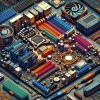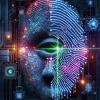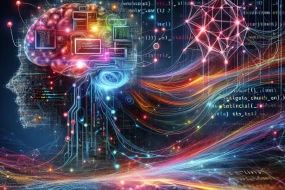
In today's digital age, our computers are more than just machines—they're essential tools that power our daily lives. Yet, when hardware issues arise, they can bring our productivity to a screeching halt. Fear not, however, as many common PC hardware problems can be tackled with a bit of know-how and patience. Whether you're a seasoned tech enthusiast or a curious newbie, this guide will walk you through some of the most frequent hardware hiccups and how to resolve them with ease.
Understanding the Basics: Why Hardware Issues Occur
Before diving into solutions, it's helpful to grasp why hardware problems crop up in the first place. Think of your PC as a finely tuned orchestra; every component plays a part. When one part is out of tune, it affects the whole performance. Over time, wear and tear, software conflicts, or even simple human errors can lead to issues. Recognizing this can be the first step in troubleshooting effectively.
The Dreaded Blue Screen of Death (BSOD)
Few things are as alarming as the sudden appearance of the Blue Screen of Death. This ominous warning typically indicates a critical system error. While it might seem catastrophic, it often points to issues with drivers, faulty hardware, or overheating. Start by noting the error code displayed. Use it as a clue to identify the problem area. For overheating, ensure your PC's fans are functioning and the vents are clear of dust. Regular cleaning can prevent future BSOD occurrences.
PC Won’t Turn On: Power Supply Problems
A computer that refuses to power on can be incredibly frustrating. Often, the culprit is the power supply unit (PSU). Check the power cable connections and ensure the outlet is functioning. If the PSU fan doesn’t spin, consider replacing the unit. Remember, a faulty PSU can mimic other hardware failures, so it's wise to rule it out early in your troubleshooting process.
Strange Noises: Diagnosing Hard Drive Failures
Unusual noises emanating from your PC can be unsettling. A grinding or clicking sound often signals a failing hard drive. If you hear such noises, back up your data immediately. Hard drives have a finite lifespan, and these sounds are often a precursor to complete failure. Consider upgrading to a solid-state drive (SSD) for improved performance and reliability.
Overheating Issues: Keep Your PC Cool
Overheating is a common issue that can lead to hardware damage. Ensure your PC is placed in a well-ventilated area. Regularly clean dust from fans and heat sinks. If overheating persists, consider adding additional cooling solutions, such as extra fans or a liquid cooling system. Monitoring software can also help keep an eye on temperature levels.
Peripheral Problems: Keyboard and Mouse Malfunctions
Input devices like keyboards and mice are crucial for interaction. If they stop working, check the connections first. For wireless devices, ensure batteries are charged. Update drivers regularly to avoid compatibility issues. Sometimes, a simple restart can resolve minor glitches.
Display Issues: Troubleshooting Your Monitor
A blank or flickering screen is a common concern. Start by checking the cable connections and ensuring the monitor is powered on. Adjust the display settings via the control panel. If issues persist, try connecting the monitor to another PC to rule out hardware failure.
RAM Problems: Diagnosing Memory Issues
Random Access Memory (RAM) issues can manifest as frequent crashes or slow performance. Run a memory diagnostic tool to check for errors. If faulty, replace the RAM module. Upgrading your RAM can also enhance overall system performance, especially for demanding applications.
Graphics Card Troubles: Dealing with Visual Glitches
Visual artifacts and screen tearing often point to graphics card issues. Ensure the card is properly seated in its slot. Update drivers to the latest version. If problems persist, test the card in another system to determine if a replacement is necessary.
Common Mistakes to Avoid
When troubleshooting, it's easy to overlook simple solutions. Avoid disassembling your PC without proper knowledge, as this can cause more harm than good. Always back up data before making significant changes. Lastly, don’t ignore updates—they often contain crucial fixes for hardware compatibility.






























